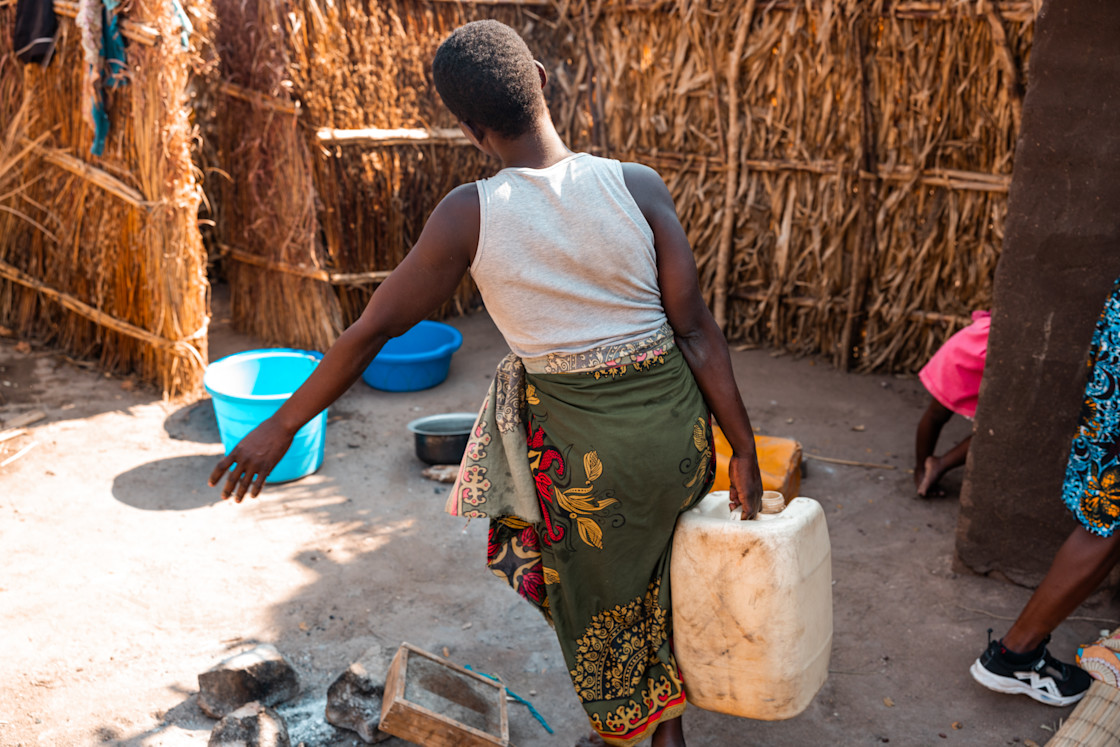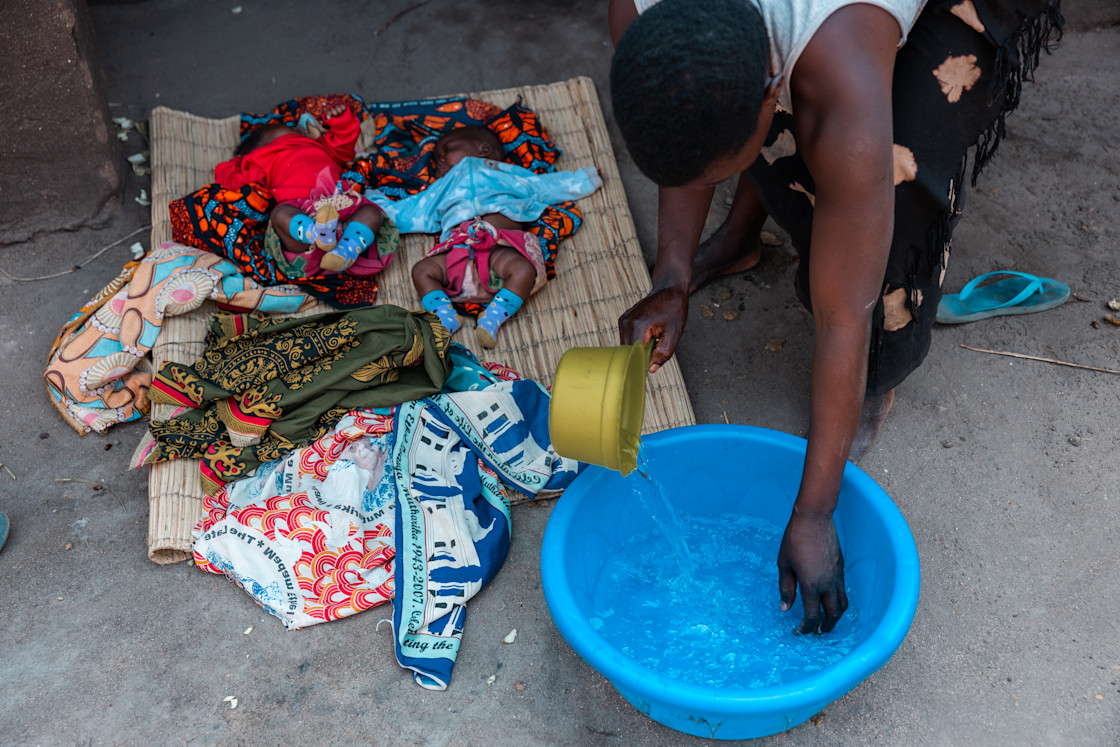In the Chikwawa District of Malawi, collecting water is considered women’s work. Which isn’t to say it’s easy. It’s anything but: Long walks in often-blistering heat to water sources that pose a range of risks. In one spot, danger is in the water itself — murky and sickly green, thanks to a recent visit from a herd of cattle. In other spots, the danger is structural: scoop holes used during the dry season have a tendency to cave in. Over the years, three children have died in scoop hole collapses.
It’s dangerous, at times back-breaking work. And social norms dictate that it’s done by women.
But what if you’re nine months pregnant — with twins?
That’s the situation in which Dorothy found herself last year. She didn’t know at the time that she was expecting twins; that news would arrive during labor and delivery. What she did know: she was experiencing fainting spells that worsened as her pregnancy progressed. They didn’t just happen while collecting water — but collecting water did make them worse.

Dorothy’s husband Mathias was scared. His wife hadn’t been this unwell during her first pregnancy. He realized he had no other option but to step in. To step up.
Mathias began taking on more household responsibilities so Dorothy could rest for the remainder of her pregnancy. And that included collecting water.

He was a man doing what his culture says is women’s work. But he was also a husband who loved his wife. A father who loved his children. And for Mathias, when love and social norms face off, there’s no contest. Love wins.
In June, Dorothy went into labor. Only then did Dorothy and Mathias learn that they were expecting two babies, not one. It would be a complicated birth; they were told there was a 50/50 chance of losing the babies — or losing Dorothy.
Mathias was terrified. “If I lose my wife, how will I care for the babies? If I lose the babies, how will life be?”
Mercifully, everyone made it. Dorothy was referred to a hospital with clean water and the ability to perform C-sections.
The hospital did have clean water, and the capacity to perform C-sections. Mathias and Dorothy’s daughters, Tamanda and Tamara, arrived safe and sound.
With two newborns in their home, the need for water only increased. They didn’t have disposable diapers, which means the twins’ cloth nappies — five per baby per day — needed frequent washing. There were no baby wipes to keep them clean between changes, which meant Tamanda and Tamara needed three baths per day. Each.

Before the twins’ arrival, the household needed 60 liters of water per day. Now? 120 liters. And Mathias continues to collect it to this day.
“[Dorothy] is breastfeeding, and she cannot go to the river with the children,” Mathias told the charity: water team during our last visit to Malawi. “I don’t think it would be ideal to stop helping her anytime soon.”
Mathias humbly admits that he once questioned if Dorothy was really as tired as she said she was. Now, he has more of an appreciation for the work she’s been doing over the years — especially as it relates to water.
“Now that I am helping my wife with all of her responsibilities, I am telling her, ‘I think you are right. You are not being lazy. You are really tired.’”
The good news? Soon, Mathias won’t have to work so hard to collect water. Neither will Dorothy. That’s because work is already underway on a solar-powered piped system for Chamanga — made possible by generous charity: water supporters.

Mathias is excited about what life will look like after clean water begins to flow much closer to their home. “We will have a very simple life — a soft life. Nothing will be an issue.”
And he’s especially excited about what it means for his daughters. “They will not have to think about where to get water. They will live a very soft life and have a good future.”
Until that day, this husband and father will continue to rise between 2:00 and 3:00 a.m. to collect water before going to the field for his job.
Because to Mathias, that’s what love looks like.
Let the love flow
Feeling the love? Why not make a donation in honor of someone you love — for Valentine’s Day, for their birthday, for any old Tuesday? Clean water is the gift that always fits.
DonatePhotos by Cubby Graham
